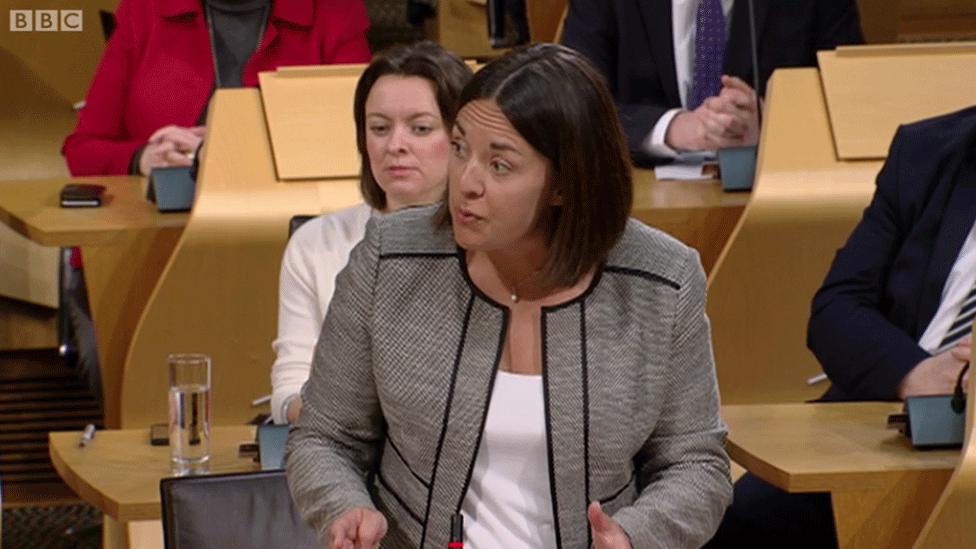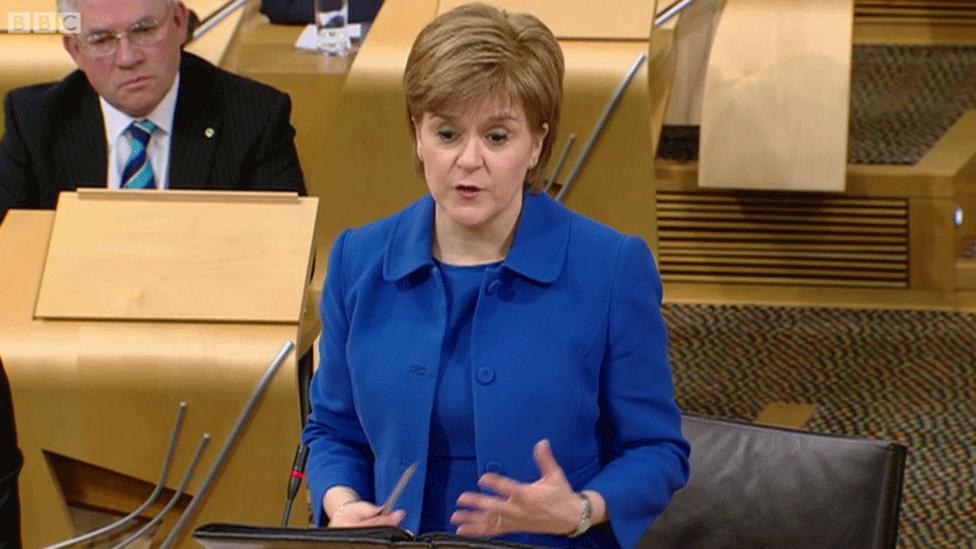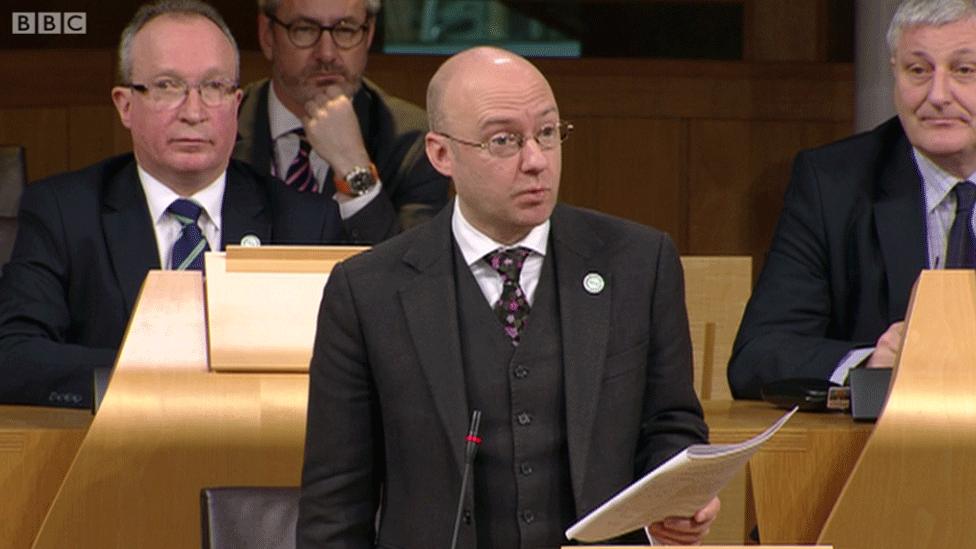First Minister's Questions: The drama continues
- Published

Exchanges occurred between Nicola Sturgeon and Kezia Dugdale about the affordability of housing
There has been sporadic misuse of Shakespeare in Parliamentary environs this week. One thinks of the Prime Minister's faintly strained deployment of play titles as he sought to flatten Jeremy Corbyn.
Today, it was back to the Scottish Play and the dramatis personae of Holyrood. Labour's Kezia Dugdale seemed to want to truncate the "seven ages of man" (or woman), as numbered in As You Like It.
Not sure if we got our due quota of "wise saws and modern instances". The exchanges with Labour (on housing) were decidedly tetchy. The exchanges with the Tories (on flooding) were perhaps too raw to admit of oratory.
But certainly politicians have to pay heed to the "bubble reputation", particularly as expressed via opinion polls in the run-up to May's election - which is, of course, dominating their every waking thought and quite a few of the somnolent ones too.
But back to the seven ages. Labour has produced a plan to top up the bonus paid to those saving for a first home mortgage. Ms Dugdale was keen to contrast that offer with what she saw as a lackadaisical approach by the Scottish government.
She chose to word that contrast in personal terms. Her youthful generation, she said, was increasingly confined to the private rented sector. By contradistinction, the First Minister's generation had found it easier to buy their home.
Now I know that the word "generation" has gained a degree of elasticity since its not infrequent use during the referendum. However, this was perhaps stretching things too far.
Ms Dugdale is indeed relatively young, being aged 34. But Ms Sturgeon is only a decade ahead of her, at 45.

Kezia Dugdale's "generation" finds it harder to buy a home

Nicola Sturgeon told the chamber that Labour was struggling to hold on to second place
Wisely, Ms Sturgeon declined to bridle. The topic was far too serious. Instead, the First Minister argued that her government had already taken considerable steps to help first time buyers - from shared equity to cutting the tax on lower-cost homes to increasing the housing supply.
In which regard she quoted Iain Gray, sitting beside Ms Dugdale, to the effect that a previous Labour government at Holyrood had been hot on housing policy - but perhaps a little cooler on building houses.
Mr Gray gestured dismissively. Ms Dugdale was unimpressed. Young folk (presumably including herself, although not the FM) had been given a "raw deal" by SNP Ministers who lacked the ambition to counter austerity in a radical fashion.
The First Minister implied that Labour leaders were free to offer virtually anything - because they did not expect to be in office after May. Rather, they were struggling to hold on to second place. And so the exchanges went on, "sudden and quick in quarrel".
Flooding highlighted
From future homes to those presently afflicted by flood water. Ruth Davidson accused the Scottish government of dragging their heels in distributing £5m in cash which formed part of a UK government package to help householders and others.
Ms Sturgeon said this characterisation was unfair. She noted grimly that the flood waters had yet to recede, that the full impact was not yet assessed. Urgent consultations were under way, she said, to ensure that the cash was effectively distributed. An announcement was pending.

Ruth Davidson raised the issue of flooding in Scotland

Patrick Harvie of the Scottish Greens raised the issue of the National Living Wage
This was the Liberal Democrats' fallow week - their paucity of numbers means they don't get a question at every outing. However, up stepped Patrick Harvie of the Greens.
He was sceptical about the Chancellor's plans for a National Living Wage, arguing that it would not compensate for cuts in welfare payments. He was particularly unhappy that the higher rate will only be paid to those aged 25 and over.
Mr Harvie suggested sanctions by confining Scottish government support to those who provide the higher rate to all staff.
In response, Ms Sturgeon essayed the approach emollient. She sympathised with Mr Harvie's stance but argued that it was important to act consensually with employers, to convince them that what she called a "fair work approach" could benefit business as well as employees.
At which point this "strange eventful history" ends.